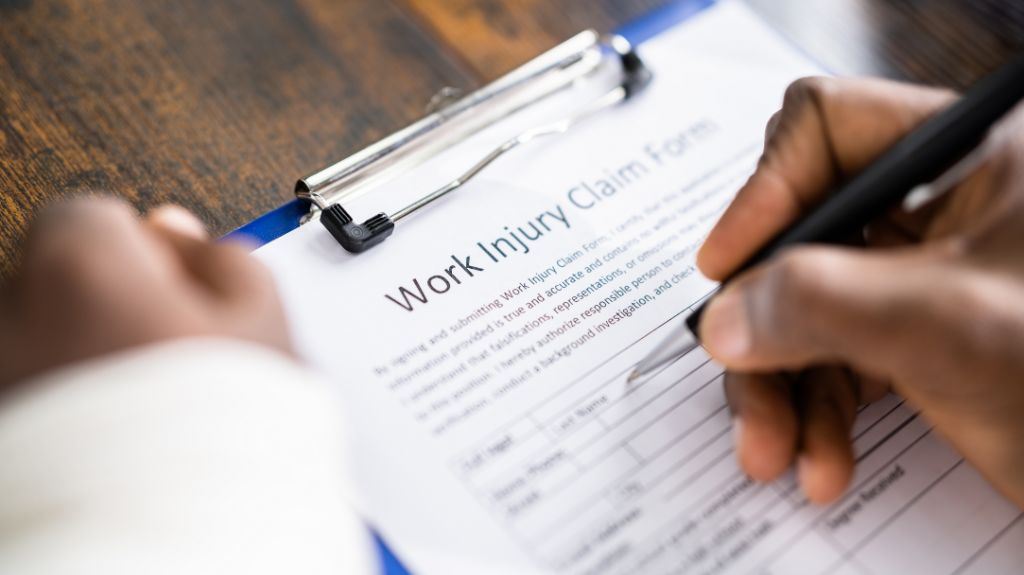Work injuries are the responsibility of the employer. To ensure that they are able to pay out the compensation owed for injuries, California requires employers to carry workers’ compensation insurance. The insurance companies, though, aren’t always forthcoming with the entire benefits that you may be owed in the case of an injury. It’s always important to do everything you can to protect your interests after a work injury and to let a lawyer examine your case before you agree to anything.
Workers’ Comp Time Limits
The length of time that workers’ comp benefits covers will depend largely upon the severity of the injury and a doctor’s assessment of how much it will impact your ability to work. The benefits may be either temporary or permanent. In most cases, the benefits will last no more than two years. In cases of more severe injuries, the benefits could last up to 240 weeks, although they need not be taken consecutively. Typically, only in cases where full recovery is not possible will permanent benefits be paid out.
Qualifying for Workers’ Comp
To qualify for workers’ compensation, you must be injured while at work or traveling to a job site or meeting (not commuting), and the injury must arise out of employment. Broadly, this means that the injury must occur when you are at work and doing a work-related activity. The claim may be disqualified if the injury is a product of things like intoxication on the job, horseplay, or your commute to or from work. An experienced workers’ comp lawyer can take a closer look at the specifics of your case and help you understand if you qualify for a workers’ comp claim.
FAQs
Q: How Long Can an Employee Be Out on Workers’ Compensation in California?
A: In California, workers’ compensation benefits are capped at 104 weeks, or two years, for most injuries. For severe injuries, such as chronic lung disease or severe burns, benefits may extend to 240 weeks, roughly 4.5 years. Permanent disability benefits, if granted, can continue for the worker’s lifetime.
Q: What Is the 90-Day Rule for Workers’ Comp in California?
A: Workers’ compensation is paid out by insurance companies. The claim is submitted to the insurance company, which then makes a decision on whether to pay the claim or reject it. In California, the insurance companies have 90 days to decide to reject the claim. If they do not reject the claim within the 90-day period, then the liability will be presumed to be accepted, and the claim should be paid out as submitted. The overturning of the 90-day rule is very rare. However, it can be done with one exception regarding new evidence. That evidence must be:
- Unknown to either the employer or insurance company during the 90-day window.
- Something that could not have been discovered by the employer or insurance company during the 90-day window.
- Something that materially affects the claim in question.
Q: Is My Job Protected While on Workers’ Comp in California?
A: Mostly, but it’s not guaranteed. It is illegal for an employer to fire you as retaliation for filing or being awarded a workers’ comp claim. However, that doesn’t mean that you still can’t lose your job. If the employer has a legitimate reason for not being able to give you your job back when your workers’ comp runs out, then you may lose your job. For instance, if the company were to go out of business during that period, this would be considered a legitimate business reason for your job not being protected.
It’s important to realize, though, that your employer is unlikely to explicitly state that they are firing you as retaliation. If you do lose your job while out on workers’ comp, then you will want to talk with a Workers’ Comp Attorney in Orange County, CA, who can help you understand if you have a wrongful termination claim that could entitle you to additional compensation.
Q: How Are Workers’ Comp Settlements Paid Out in California?
A: How workers’ comp is paid out depends on whether the term is temporary or permanent. In the case of temporary disability, the workers’ comp payments are paid out every two weeks, starting 14 days after the receipt of the medical report describing the reduction in hours or inability to work at all. Settlements occur in the case of permanent disability. There are two kinds of settlements:
- Stipulation Award – In this kind of settlement, the two parties agree on a temporary disability payment, permanent disability payments, and future medical care. The insurance company will cover future medical treatment related to the work injury, the worker is able to continue working with the same employer, payments are paid out at an interval, and the claim may be reopened if the injury condition worsens.
- Compromise and Release – This is when the two parties come to an agreement on the total value of the injury, future wages lost, and future medical costs. They then settle on a lump-sum payment. After the payment is made, the insurance company will not cover any future medical treatment, the worker will not continue with the same employer, and the claim cannot be reopened, even if the worker’s condition gets worse.
Get the Workers’ Comp That You Are Entitled To
If you get hurt at work, you’re supposed to get compensation that covers the full extent and duration of your injury. Unfortunately, insurance companies are often hesitant to pay out the entirety of what they should. That’s not a surprise, as whatever they pay out means lower profits. Don’t agree to anything without first letting a workers’ compensation lawyer take a look at your case. If you have a case that you would like us to review, contact us today.
Key Takeaways: How Long Can You Be on Workers’ Comp in California?
Temporary Disability Benefits: Typically last up to 104 weeks (approximately 2 years) for less severe injuries.
Severe Injuries: For more serious conditions, benefits can extend up to 240 weeks (about 4.5 years), though not necessarily consecutively.
Permanent Disability Benefits: Available if full recovery isn’t possible, continuing until maximum medical improvement is reached.
Reopening Claims: Under the 5-year rule, workers may reopen claims within five years of the injury if their condition worsens.
Legal Assistance: Consulting an experienced workers’ compensation attorney can help navigate complex cases and ensure proper benefits.





